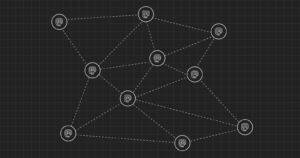This is an example of a Interoperability JSON file which you might see used to store configuration settings to setup your system. It might also be used to contain Interoperability record information which can be easily shared across components using the simple JSON format.
Also: See more JSON examples.
{
"ResultSet": {
"totalResultsAvailable": "1827221",
"totalResultsReturned": 2,
"firstResultPosition": 1,
"Result": [
{
"Title": "potato jpg",
"Summary": "Kentang Si bungsu dari keluarga Solanum tuberosum L ini ternyata memiliki khasiat untuk mengurangi kerutan jerawat bintik hitam dan kemerahan pada kulit Gunakan seminggu sekali sebagai",
"Url": "http://www.mediaindonesia.com/spaw/uploads/images/potato.jpg",
"ClickUrl": "http://www.mediaindonesia.com/spaw/uploads/images/potato.jpg",
"RefererUrl": "http://www.mediaindonesia.com/mediaperempuan/index.php?ar_id=Nzkw",
"FileSize": 22630,
"FileFormat": "jpeg",
"Height": "362",
"Width": "532",
"Thumbnail": {
"Url": "http://thm-a01.yimg.com/nimage/557094559c18f16a",
"Height": "98",
"Width": "145"
}
},
{
"Title": "potato jpg",
"Summary": "Introduction of puneri aloo This is a traditional potato preparation flavoured with curry leaves and peanuts and can be eaten on fasting day Preparation time 10 min",
"Url": "http://www.infovisual.info/01/photo/potato.jpg",
"ClickUrl": "http://www.infovisual.info/01/photo/potato.jpg",
"RefererUrl": "http://sundayfood.com/puneri-aloo-indian-%20recipe",
"FileSize": 119398,
"FileFormat": "jpeg",
"Height": "685",
"Width": "1024",
"Thumbnail": {
"Url": "http://thm-a01.yimg.com/nimage/7fa23212efe84b64",
"Height": "107",
"Width": "160"
}
}
]
}
}Frequently Asked Questions about JSON Interoperability
What is JSON Interoperability and why is it important?
JSON Interoperability refers to the ability of different systems to exchange and use JSON data effectively. It’s crucial because it ensures that data can be shared and understood across various platforms, languages, and systems. This is particularly important in today’s interconnected world where data exchange is a common occurrence. JSON, being a lightweight data-interchange format, is easy for humans to read and write and easy for machines to parse and generate, making it a popular choice for data exchange.
What are some common JSON Interoperability vulnerabilities?
JSON Interoperability vulnerabilities often arise from the differences in how various JSON parsers handle certain data structures. These can lead to security risks such as injection attacks, where an attacker can manipulate the data to execute malicious code, or information leaks, where sensitive data can be unintentionally exposed. It’s crucial to understand these vulnerabilities and implement appropriate measures to mitigate them.
How can I mitigate JSON Interoperability vulnerabilities?
Mitigating JSON Interoperability vulnerabilities involves a combination of secure coding practices and rigorous testing. This includes validating and sanitizing input data, using secure JSON parsers, and implementing proper error handling. Regular security audits and vulnerability assessments can also help identify and address potential issues.
What is the role of JSON parsers in JSON Interoperability?
JSON parsers play a crucial role in JSON Interoperability. They are responsible for converting JSON data into a format that can be understood and used by the programming language. However, different parsers may handle certain data structures differently, leading to potential interoperability issues and vulnerabilities.
How does JSON Interoperability relate to JavaScript?
JSON, or JavaScript Object Notation, is a subset of JavaScript. It’s a data format that uses human-readable text to transmit data objects consisting of attribute-value pairs. JSON Interoperability, therefore, is directly related to JavaScript as it ensures that JSON data can be effectively exchanged and used across different JavaScript environments.
What are some best practices for JSON Interoperability?
Some best practices for JSON Interoperability include using a consistent data structure, validating and sanitizing input data, using secure JSON parsers, and implementing proper error handling. Regular security audits and vulnerability assessments can also help ensure data integrity and security.
Can JSON Interoperability issues affect other programming languages?
Yes, JSON Interoperability issues can affect other programming languages. JSON is language-independent, meaning it can be used with any programming language that can parse and generate JSON data. Therefore, any issues with JSON Interoperability can potentially impact any system or application that uses JSON for data exchange.
How does JSON Interoperability impact web development?
JSON Interoperability has a significant impact on web development. It enables the exchange of data between the client and server, and between different systems and applications. However, any issues with JSON Interoperability can lead to data inconsistencies, security vulnerabilities, and other potential problems.
What tools can I use to test JSON Interoperability?
There are various tools available to test JSON Interoperability. These include JSON validators, which can check for syntax errors and validate the structure of your JSON data, and JSON parsers, which can help identify any potential interoperability issues.
How can I learn more about JSON Interoperability?
There are many resources available to learn more about JSON Interoperability. This includes online tutorials, documentation, and forums. Additionally, participating in coding communities and attending relevant workshops or seminars can also provide valuable insights and knowledge.
Sam Deering has 15+ years of programming and website development experience. He was a website consultant at Console, ABC News, Flight Centre, Sapient Nitro, and the QLD Government and runs a tech blog with over 1 million views per month. Currently, Sam is the Founder of Crypto News, Australia.




